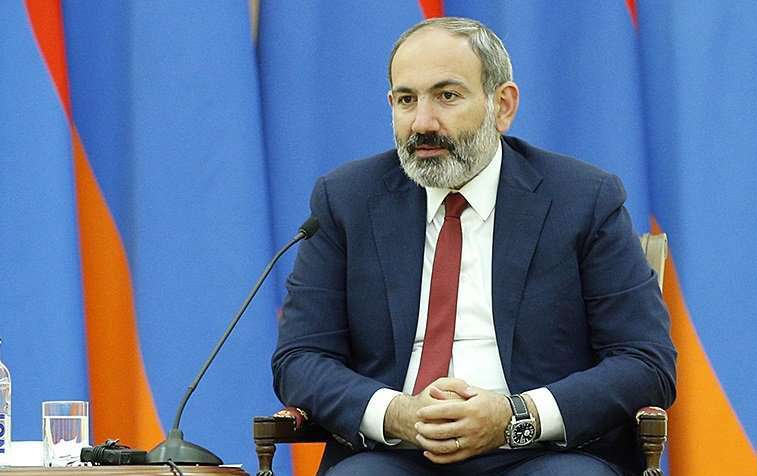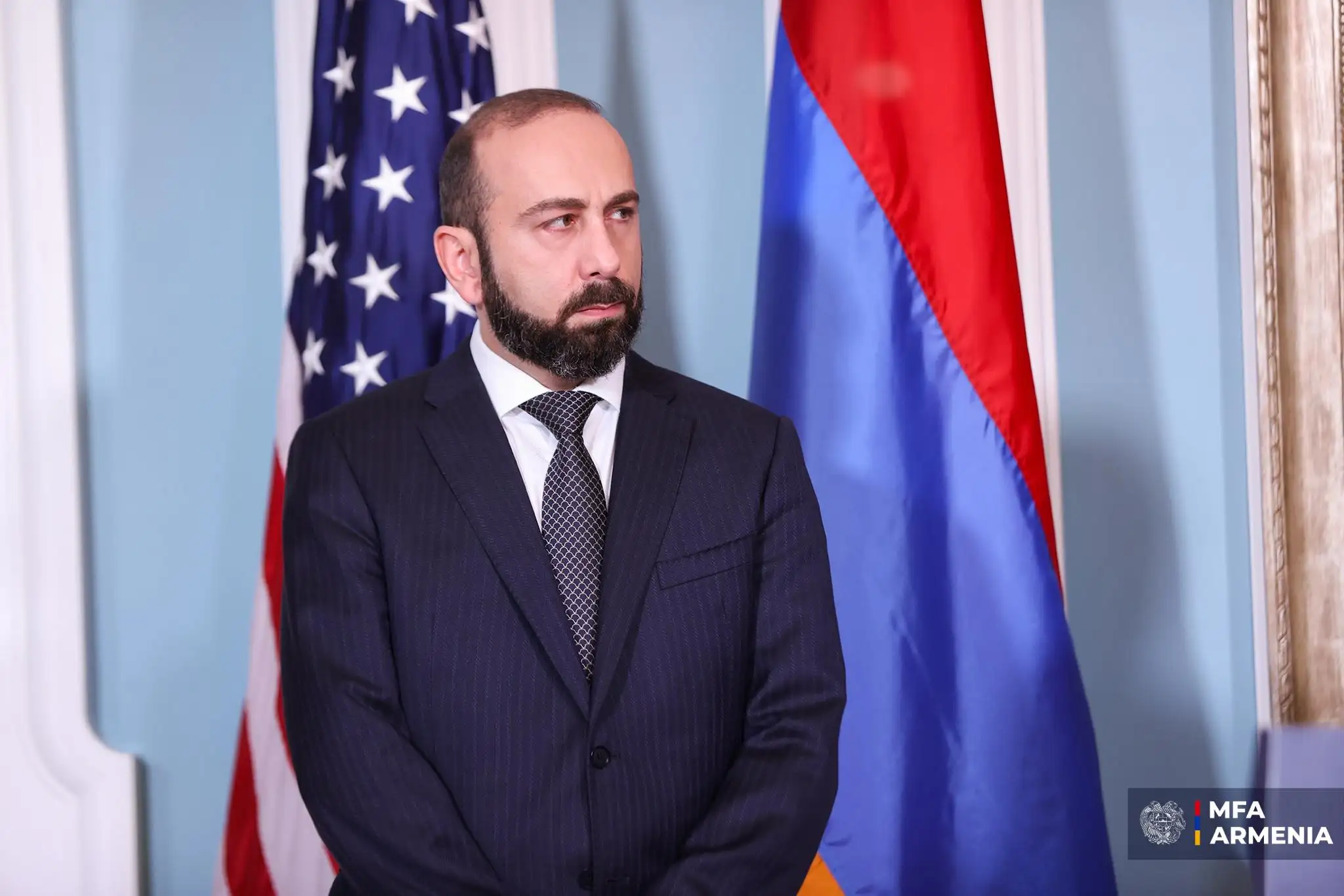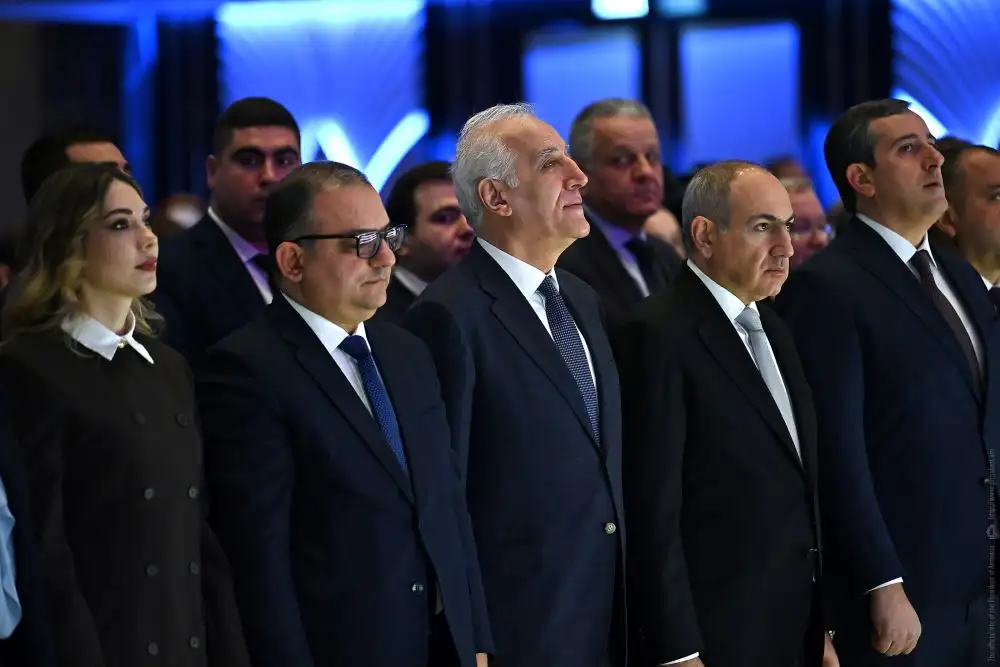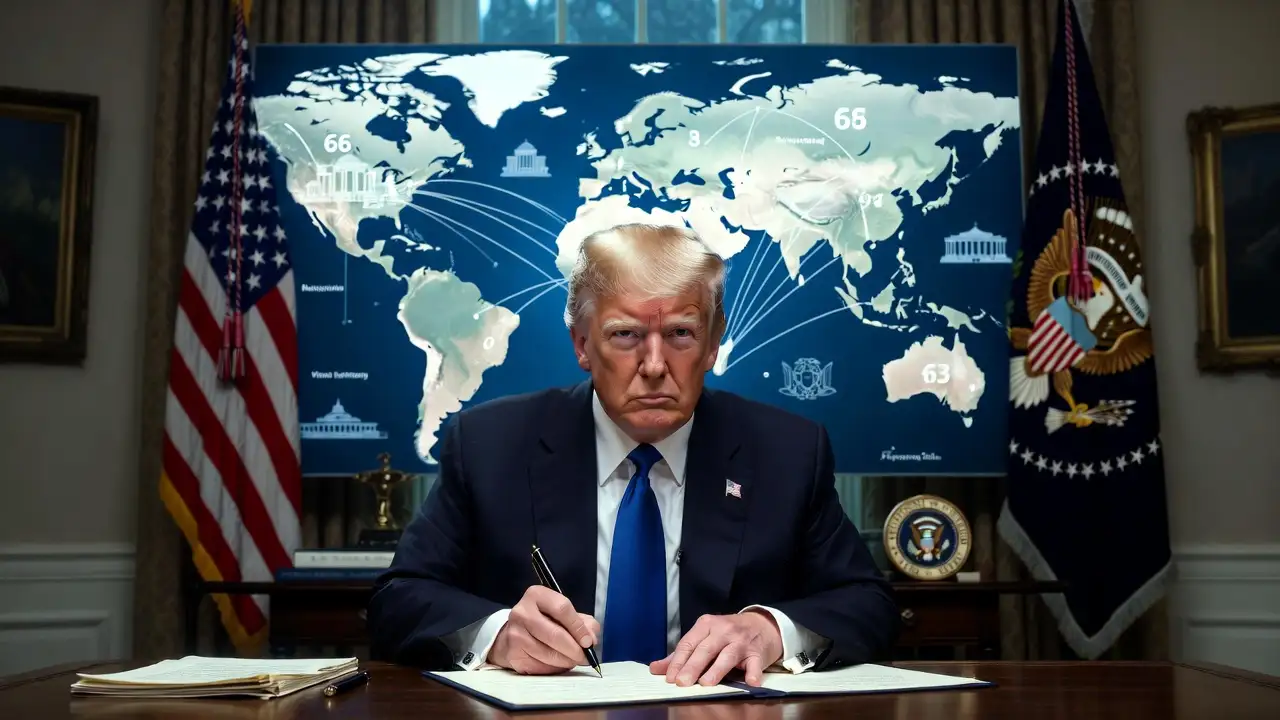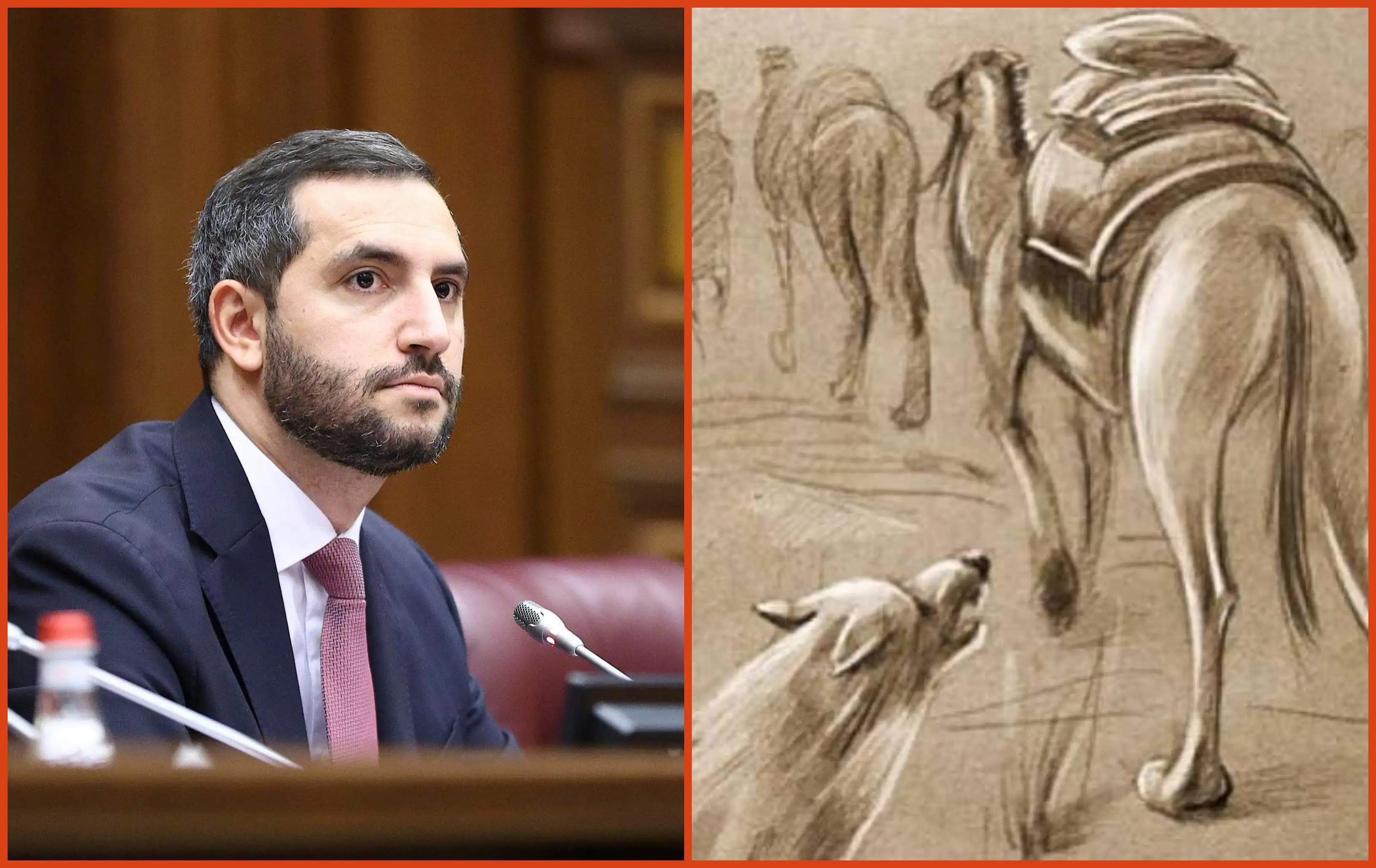Prime Minister Nikol Pashinyan gave an interview to Kathimerini daily, which we present below.
Kathimerini Daily: Athanasios Katsikidis - During the meeting with Prime Minister Mitsotakis, you emphasized the "Crossroads of Peace" project to create a trade hub connecting Armenia with the Mediterranean Sea and Greece, passing through Turkey's territory. How can this program contribute to regional stability and security, from the Caucasus to the Mediterranean?
Prime Minister Nikol Pashinyan - Contributing to establishing lasting peace and stability in the South Caucasus is the priority of the Republic of Armenia. I emphasize the lifting of the infrastructure blockade in the region. The "Crossroads of Peace" project implies, among other things, a significant increase in the capacities of road freight, pipelines, power transmission, and internet cables between the Black Sea on the one hand and the Persian and Oman Gulf on the other through the territory of Armenia. The project also implies the creation of railway communication between those two endpoints, which is possible in case of the normalization of Armenia-Azerbaijan relations because the most optimal route of the railway from Georgia entering Armenia to the Islamic Republic of Iran passes through the Azerbaijani Nakhichevan. That railway existed in the Soviet years. This is the north-south wing of the Crossroads of Peace.
There is also an east-west wing that can connect the Caspian Sea to the Mediterranean Sea and Turkish ports on the Black Sea through the territory of Armenia. Railways and automobile roads, railroads, pipelines, power transmission lines, and cables must enter Turkey from Azerbaijan through Armenia. And we are ready for such solutions. Moreover, the infrastructure of this road can also be used to connect the central part of Azerbaijan to Nakhichevan, and we are prepared for this as well. We have established well-known principles in the "Crossroads of Peace" project to operate all these infrastructures. It is
- All infrastructure must be under the sovereignty and jurisdiction of the countries they pass.
- Each country implements border and customs control in its territory through its state institutions and ensures security.
- The specified infrastructure can be used for both international and domestic transportation.
- All countries use each other's infrastructure on the principle of equality and reciprocity.
Kathimerini Daily, Athanasios Katsikidis—The recent Nagorno-Karabakh war demonstrated the need for international cooperation and defense partnerships, particularly Greece, which is standing by the Armenian people and providing humanitarian aid. Given the growing regional risks and threats, what is the significance of the defense memorandum you signed with your partner country? Is it about greater cooperation in developing defense technologies or even creating a common defense doctrine?
Prime Minister Nikol Pashinyan - Since Armenia's independence, the Armenian people have always enjoyed Greece's support. I want to take this opportunity to express once again my gratitude to the Greek people and the Greek government for being by our side and supporting us in difficult times.
Cooperation in the defense sector has long-standing traditions. In December of last year, the agreement on military-technical cooperation was signed between the two governments, which implies the exchange of experience, knowledge, and the development of joint projects. Many Armenian cadets have the opportunity to study in Greek educational institutions. These are just a few episodes of interaction in this area. Regular military exercises are held. Despite excellent cooperation in the defense sector, there is great potential to develop it. We hope that cooperation in this direction will expand in a short time.
I consider it necessary to emphasize once again that Armenia's cooperation with its defense partners is not directed against any country. The development of Armenia's defense capabilities aims to protect our independence, sovereignty, territorial integrity, and inseparability of borders.
Kathimerini Daily by Athanasios Katsikidis—The recent signing of the Declaration on Friendly Relations and Neighborliness between Greece and Turkey has reduced tensions between the two countries. As Turkey's eastern neighbor, have you noticed a decrease in regional tensions and "provocative" statements?
Prime Minister Nikol Pashinyan: Turkey is a regional actor, and it is natural to expect it to have a balanced position regarding various regional developments. More attention should be paid to Turkey's official rhetoric, which can promote and endanger several processes. On the other hand, Armenia expects Turkey's rhetoric will not aim at increasing regional tension but will contribute to promoting dialogue and cooperation in the region.
As you know, Armenia and Turkey have started the process of normalizing relations, which is aimed at the full normalization of relations, the establishment of diplomatic relations between the countries, and the complete opening of the interstate border. Within the framework of this process, an agreement was reached to open the Armenia-Turkey land border for citizens of third countries and persons with diplomatic passports. The implementation of this agreement will also have a positive impact on regional dynamics.
The ongoing developments between Greece and Turkey prove that overcoming differences and forming a mutually beneficial cooperation agenda between the neighbors is possible.
Kathimerini Daily by Athanasios Katsikidis - Armenia has recently frozen its participation in the Collective Security Treaty Organization (CSTO). Russia's soft stance on Azerbaijan's attack has caused concern among your citizens. Given these facts, are you ready to adopt a more Western approach to international politics?
Prime Minister Nikol Pashinyan - In our assessment, the Collective Security Treaty Organization has not fulfilled its security obligations towards the Republic of Armenia, particularly for 2021 and 2022.
And the practical effect is that we have essentially frozen participation in the Collective Security Treaty Organization. 2023 Since September, we have not had a permanent representative in the CSTO. We do not participate in CSTO events at a high level. We do not block CSTO decisions but do not participate in them. Turning to the second part of the question, Armenia is open to establishing and developing mutually beneficial relations with all partners. It has a clear position on establishing stable and lasting peace in the region. To this end, we are diversifying our security relationships.
Kathimerini Daily By Athanasios Katsikidis - Mr. Prime Minister, the Armenian community in Greece is more than 30,000, and they are achieving success in the fields of art, academia, and even politics. What initiatives are being discussed to expand interpersonal exchanges and cultural cooperation between Armenia and Greece?
Prime Minister Nikol Pashinyan - You are right; the Armenian community living in Greece and the Greek community living in Armenia are essential factors in strengthening our bilateral ties. The existing historical and solid relations need to be strengthened by the contacts of the young generations of Armenians and Greeks, and we must take steps to create opportunities for mutual recognition. In this regard, I want to highlight the significance of tourism, which is the best opportunity to strengthen ties between people and joint scientific and educational programs. It is planned to sign a new bilateral cooperation program in the education sector, which will provide new opportunities for student-faculty exchanges. Shortly after, several other joint initiatives in the scientific and cultural spheres will be planned to strengthen bilateral cultural ties.
Of course, to intensify contact between people, the negotiations on the liberalization of the visa regime with the EU countries must be successful. Armenia has been ready to implement this process for a long time.
Kathimerini daily: Athanasios Katsikidis - To Conclude our interview, how do you envision the future development of bilateral relations between Armenia and Greece, and what is your message to the Greek people?
Prime Minister Nikol Pashinyan - The relations between Armenia and Greece are based on a shared history, long-standing friendship, and commitment to shared values. We also consider the development of bilateral ties within this framework. Armenia sees its development through the establishment of democratic institutions. We also strive to develop cooperation with European structures, first of all, the European Union. In this way, the experience of Greece and the assistance we received are significant to us. Stability and peace are fundamental values, and Armenian-Greek friendship can contribute to efforts to ensure them. The deepening of bilateral relations will prepare the ground for Armenia-Greece's close cooperation to be brought to a higher strategic level.
In conclusion, I wish the friendly Greek people peaceful prosperity and progress.




